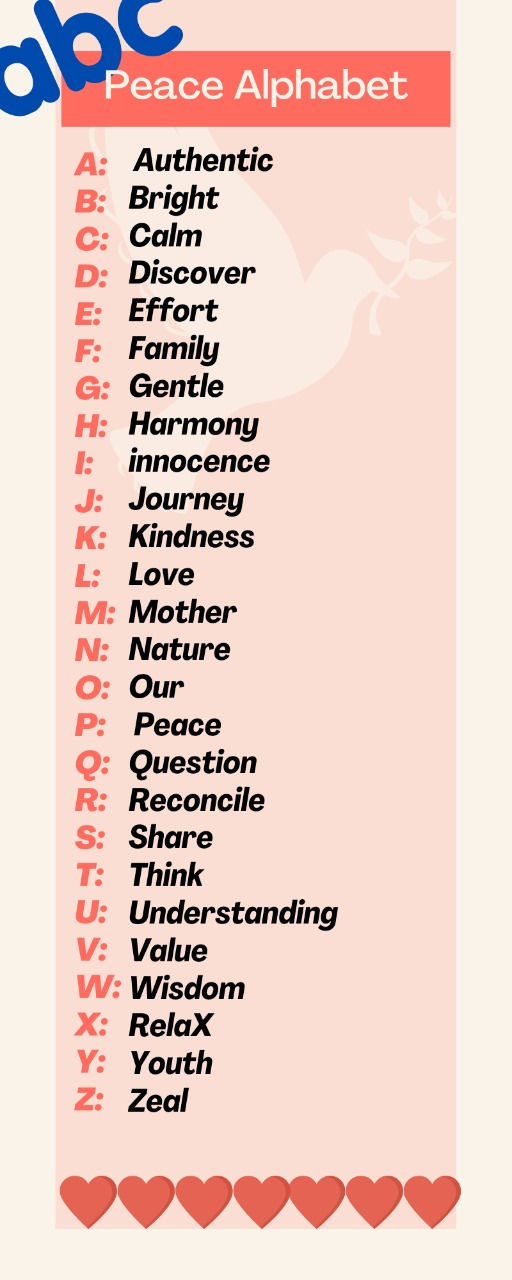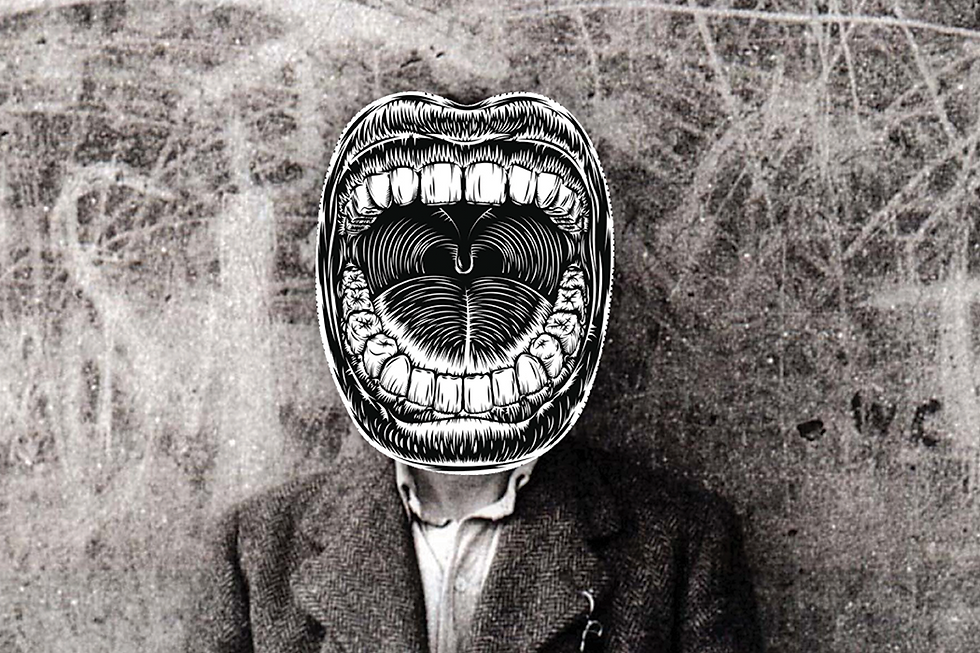Words to reflect upon peace and violence.
- Laura Alejandra Salazar García
- 1 jun 2021
- 3 Min. de lectura
Querido/a lector/a
Saludos de parte de Lady Tatiana Aldana Prieto y Laura Alejandra Salazar García, creadoras de este proyecto para la clase de Peace Linguistics II 2021-1.
A continuación, te encontrarás con dos listas de palabras en orden alfabético, una sobre violencia y otra sobre paz, en ellas hay sustantivos, adjetivos y verbos. Luego podrás leer un poema creado por Laura Alejandra Salazar García, una de las participantes de este proyecto, el cual fue creado antes del Paro Nacional de Colombia iniciado el 28 de abril de 2021. Ahora mismo este tiene un significado mucho más fuerte pues en él logramos encontrar paz lingüística mediante la poesía. El perdón es una fortaleza que debemos trabajar para poder converger en soluciones que traigan paz, tranquilidad y equidad a nuestras comunidades.


Te invitamos a reflexionar sobre lo que las palabras pueden significar tanto para bien como para mal y en cómo utilizas esas palabras día a día para impactarte a ti, a las personas que te rodean o simplemente a gente que no conoces aún. Para llegar a esa reflexión nos gustaría que:
Piensa y anota una palabra relacionada con paz y otra con violencia, posteriormente escoge una palabra de cada diccionario y anotalas también. En total deberías tener cuatro palabras anotadas.
Escribe una estrofa más para completar el poema con las palabras que acabas de escoger de las listas de palabras y las dos palabras que pensaste al principio de la actividad.
Escribe una breve reflexión sobre lo que escribiste y cómo se ve reflejado en la paz lingüística.
Actividades
Antes de leer el poema
Observa detenidamente cada una de la lista de palabras en orden alfabetico.
Piensa en una palabra diferente relacionada con la paz y otra con violencia.
2. Mientras lees el poema
Presta atención a las palabras resaltadas
Dirígete a los alfabetos nuevamente y escoge una palabra que llame tu atención de cada alfabeto
Completa el poema creando una nueva estrofa (mínimo 4 versos)
Incluye las dos palabras que elegiste de los alfabetos y las dos palabras que pensaste relacionadas con la paz y violencia.

3. Después de leer el poema
Comparte tu creación en el siguiente padlet. https://padlet.com/lolosalaz97/oiy0akysj8rb9ddk
Escribe una corta reflexión sobre lo que escribiste y la forma en que tus palabras reflejan el concepto de paz lingüística (en el mismo padlet).
Dear reader:
Next, you will find two lists of words in alphabetical order, one about violence and the other about peace, in them there are nouns, adjectives, and verbs. Then you can read a poem created by Laura Alejandra Salazar García, one of the participants in this project, which was created before the National Strike in Colombia that began on April 28, 2021, right now it has a much stronger meaning because in it we managed to find linguistic peace through poetry. Forgiveness is a strength that we must work on in order to converge on solutions that bring peace, tranquility, and equity to our communities.
We invite you to reflect on what words can mean for both good and bad and how you use those words every day to impact yourself, the people around you, or simply people you do not know yet. To arrive at this reflection we would like you to:
Think and write down a word related to peace and another to violence, then choose a word from each dictionary and write them down as well. In total, you should have four words written down.
Write one more stanza to complete the poem with the words you just picked from the lists of words and the two words you thought of at the beginning of the activity.
Write a short reflection on what you wrote and how it is reflected in linguistic peace.
Activities
Before reading the poem
Look closely at each of the alphabets.
Think of a different word for peace and another for violence.
2. While you read the poem
Pay attention to the highlighted words.
Go to both alphabets again and choose a word that catches your attention from each alphabet.
Complete the poem by creating a new stanza (minimum of 4 verses).
Include the two words that you chose from the two alphabets and the two words that you thought related to peace and violence.

3. After reading the poem
Share your creation on the next padlet. https://padlet.com/lolosalaz97/oiy0akysj8rb9ddk
Write a short reflection on what you wrote and how your words reflect the concept of linguistic peace (on the same padlet).
Created by:
Lady Tatiana Aldana Prieto
Laura Alejandra Salazar García
¿Te gustaría saber más acerca de la base teórica de este proyecto? / Would you like to know more about the theoretical base of this project?
Puedes dar click aquí.
O descargar el PDF.



Comentarios